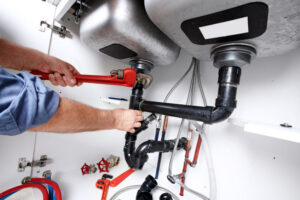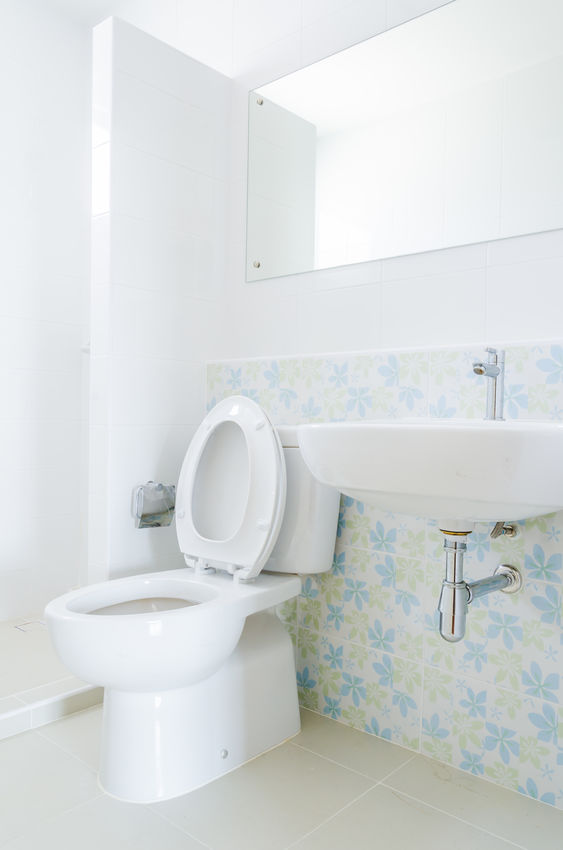
Plumbing problems are inevitable in any home, ranging from minor inconveniences to significant disruption. But what if you could prevent the latter? What most homeowners don’t realize is how easy it can be to avoid larger issues. In recognizing and addressing some of the more common plumbing issues early on, you can prevent extensive damage and high repair costs, and maintain a healthier plumbing system overall.
Identifying Signs of Plumbing Problems
While we understand that most homeowners aren’t professional plumbers trained to diagnose problem areas, there are plenty of subtle, easy-to-identify signals your plumbing system will send when trouble is on the horizon. If caught early enough, you’ll be able to contact a professional plumber for a quick and easy fix rather than a full-blown (and costly) emergency repair.
Slow Drains
Slow drainage in sinks, bathtubs, or showers often tells you there might be a clog. If you experience frequent events like these, it’s usually a sign of a bigger issue.
Water Stains
Water stains on ceilings or walls are more than just an eye sore. They may suggest a leak somewhere in your plumbing system, which could ultimately lead to foundation damage.
Water Pressure Changes
A sudden drop or increase in water pressure can signal leaks, blockages, or problems with your water supply. If left unchecked, you may risk water getting into places it shouldn’t be, causing extensive damage and the need to repair or replace more than just a few busted pipes.
Once signs of a plumbing problem have been identified, it’s logical to question what caused it in the first place. Getting to the root can help you explain the problem more clearly to your plumber and stop the spread of further damage.
Causes of Common Plumbing Issues
Leaky Faucets and Pipes
Leaky faucets and pipes are among the most common plumbing problems homeowners face. The causes can vary, including worn-out washers, corrosion, or high-water pressure. If left unattended, these leaks can lead to significant water damage, mold growth, structural issues, and increased utility bills.
Clogged Drains and Toilets
Clogged drains and toilets are usually caused by the buildup of foreign objects, hair, grease, or soap scum. Attempting to unclog drains using DIY methods, such as using chemical drain cleaners or snakes from your local hardware store, can often worsen the problem or damage your pipes. Leave the dirty work to the professionals, who use proper tools and techniques to clear clogs safely and effectively.
Running Toilets
A running toilet is often due to issues with the flapper valve, which controls the flow of water from the tank to the bowl. Other causes can include improperly adjusted float mechanisms or sediment buildup. This can ultimately waste a significant amount of water, leading to higher water bills.
Low Water Pressure
Low water pressure can result from several factors, such as pipe corrosion, leaks, or issues with your water supply. Diagnosing the root cause of low water pressure requires professional plumbing expertise. Ignoring it can lead to more severe problems, including burst pipes or water damage.
DIY vs. Professional Plumbing

While some plumbing issues may seem easy to fix, attempting DIY repairs can pose major risks, especially for those with no experience. Without proper knowledge and tools, you may worsen the problem or cause additional damage. Professional plumbers provide accurate diagnostics and long-term solutions, ensuring the safety and efficiency of your plumbing system.
Maintenance Tips to Prevent Common Issues
Preventative maintenance is key to avoiding common plumbing problems. Regularly checking for all of the above can help you catch minor issues before they escalate. There are also a number of small and affordable plumbing accessories you can purchase to aid in these efforts. For example, drain screens can be installed to prevent hair and other particles from causing clogs. Simple, yet highly effective.
Routine professional inspections are also recommended. Having a professional plumber inspect your drain system annually can help catch small, hidden problems before they become something much more serious. Professionals can perform tasks like water heater maintenance, sewer line inspections, and a number of additional services that are beyond the scope of typical DIY.
When to Call a Plumber
Certain scenarios can be detrimental if not addressed immediately, thus requiring emergency plumbing services.
Ruptured Pipes
A ruptured pipe can cause significant water damage in a very small amount of time.
Water Heater Failure
A failing water heater can cause pools of water to form in your basement. A plumber can run diagnostics and make repairs before any further damage is caused.
Sump Pump Failure
A sump pump failure can also create flooding, as well as mold and mildew growth, and even foundation damage if not taken care of right away.
The Takeaway
So, what does it all break down to? Ultimately, any trustworthy professional would want his clients to know how easy it can be to avoid large-scale plumbing issues if you’re willing to pay attention.
Early detection, regular maintenance, and professional help are key to resolving plumbing problems efficiently. Yes, we understand that a home’s plumbing system typically runs like a well-oil machine, so much so that you don’t even think about it. In the long run, however, staying cognizant of little things like water pressure changes and slow drainage, and addressing them from the start, can truly make a world of difference for both your in-home comfort and your wallet.
Prioritize professional assistance to ensure the longevity and reliability of your home’s plumbing. Contact Pro’s Plumbing & Sewer today for more information about common plumbing issues, how to address them, and how we can help.

Leave a Reply